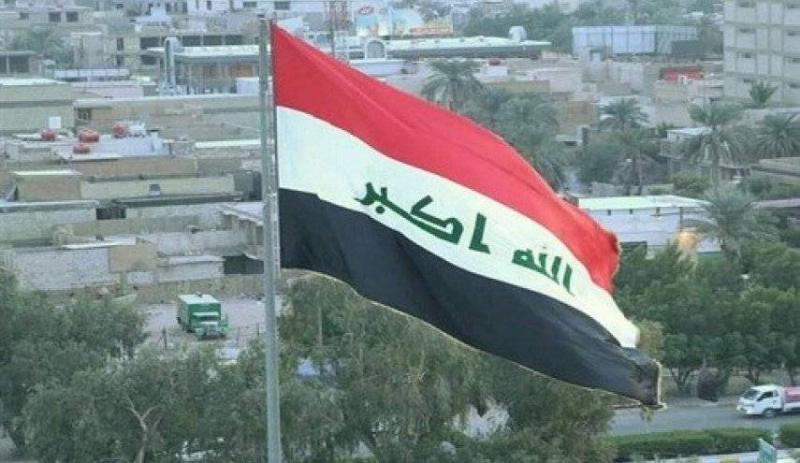Under the title "Open Borders and Weak Monitoring!.. 'Drug Poisoning' Devastates Half of Society and Warns of Severe Disasters," Alsumaria News published a report highlighting that after being a transit point for drugs until 2003, Iraq has become a consumer nation. Officials acknowledge that drug substances have devastated half of society amid a chaotic health situation lacking mental health facilities, coinciding with the spread of the COVID-19 pandemic, in addition to a devastated economy and increased unemployment rates stemming from the repercussions of the new coronavirus since March 2020. Observers believe that the lack of border monitoring poses a societal danger that could lead to a drug use rate of 70% within the next five years if the situation remains unaddressed.
In a televised interview, Interior Minister Othman Al-Ghanimi recently stated that the percentage of drug-using youths has reached 50%, raising concerns in societal circles as this figure is considered "catastrophic" in a conservative community. According to official statistics from the Supreme Judicial Council, the number of arrests made in 2021 amounted to 11,789 individuals, including 328 under the age of 18. The statistics indicate that Baghdad ranks first with 1,933 arrests, followed by Basra with 1,871, and Babylon in third place with 1,617 arrests.
Interior Ministry spokesman Khaled Al-Muhanna pointed out that "there are no official statistics regarding the number of drug users and dealers, and what is circulated is merely estimates." Semi-official reports suggest that most illegal drugs enter Iraq through the southern borders, with the highest rate of users in impoverished cities. Al-Muhanna stated, "Drugs in Iraq are a phenomenon that has begun to widen and escalate," noting that "the trade and use of drugs are cross-border crimes, and controlling the channels and smuggling routes completely is difficult." He added that "Iraq's borders are very vast and traffickers employ smart methods and modern technologies, including drones," mentioning that "his ministry has managed to reach a large number of dealers."
Regarding treatment and rehabilitation centers for addicts, Al-Muhanna emphasized that "there are specific beds for treating addicts, but there is a significant lack of infrastructure," explaining that "the absence of private hospitals offering medical and psychological support is one of the main problems faced by users who seek to overcome their addiction."
Kata' al-Rikabi, a member of the former Security and Defense Committee in Parliament, told Alsumaria News that "the weak governmental performance is a primary cause of the spread of drug addiction, leading to Iraq becoming a consumer after being just a transit point for neighboring countries." Earlier, the Directorate for Combating Drugs under the Interior Ministry revealed an official tally involving the arrest of more than 17,000 individuals for drug use and trafficking in Iraq over 22 months. Al-Rikabi added that "social monitoring deficiency is also a part of the phenomenon's expansion at the level of Iraqi governorates," pointing out significant gaps and loopholes in the Iraqi border outlets through which various types of drugs are smuggled.
Al-Rikabi further asserted that "the Interior Minister's statement indicating the rate of drug use reaching 50% among users signals a shocking community danger." Article 27 of the drugs law prescribes the death penalty for any drug dealer, while Article 28 stipulates imprisonment from 15 years to life for any distributor or possessor of drugs. Al-Rikabi urged "the security forces and the Drug Control Directorate in all governorates to take all necessary measures to reduce the rise of this phenomenon that leads to societal corruption." He indicated that "if the situation remains unchanged without interventions, it is not unlikely that the rate will reach 70-80% in about five years."
The former parliament member noted that "there are malicious hands that seek to spread this plague among the categories of Iraqi society." According to a report issued by the UN Office on Drugs and Crime last February, crystal meth is now considered the most dangerous and widespread drug in Iraq, warning that it has begun to be produced secretly within Iraq after previously being smuggled from Iran.
As of 2020, Iraq's population exceeded 40 million, according to estimates from the Ministry of Planning, with 56.5 percent classified as working-age individuals aged 15 to 65. However, rates of poverty and unemployment remain high. Psychologist Ibrahim Al-Saigh believes that the significant spread of drugs among Iraqi youth has economic roots related to unemployment rates, as young Iraqis find no job opportunities or outlets for their positive and negative energies, with no scientific, cultural, or recreational centers to absorb them. There are also no governmental plans to address the crises facing the new generation, which finds itself unemployed, loitering in the streets and cafes, seeking to forget their reality through drug use or quick profits that lure them into the drug trade.
Political problems have also cast a shadow over the spread of drugs, according to Al-Saigh, as many young people aspire for their country to be stable like other nations without security incidents or sectarian tensions, only to encounter disappointment. Many resort to drugs as a means to escape their reality. Iraq lacks "serious" specialized centers for treating addicts, as what currently exists consists of small, insufficient attempts to accommodate some cases.
Poverty rates in Iraq stand at 27%, translating to over ten million impoverished individuals, while unemployment rates vary between central and southern regions, the most affected and oil-exporting areas critical to Iraq's budget, with unemployment in southern regions at 14% and in central regions at 9.7%.




